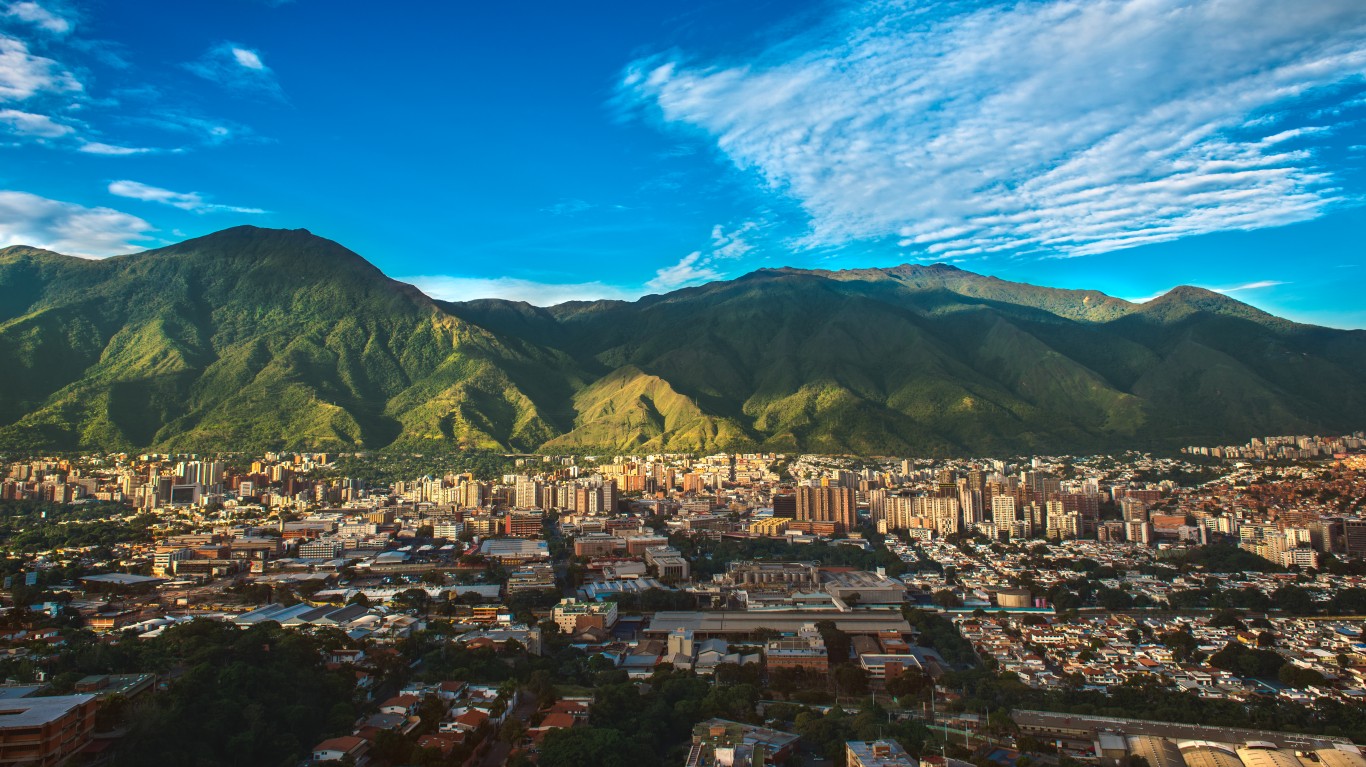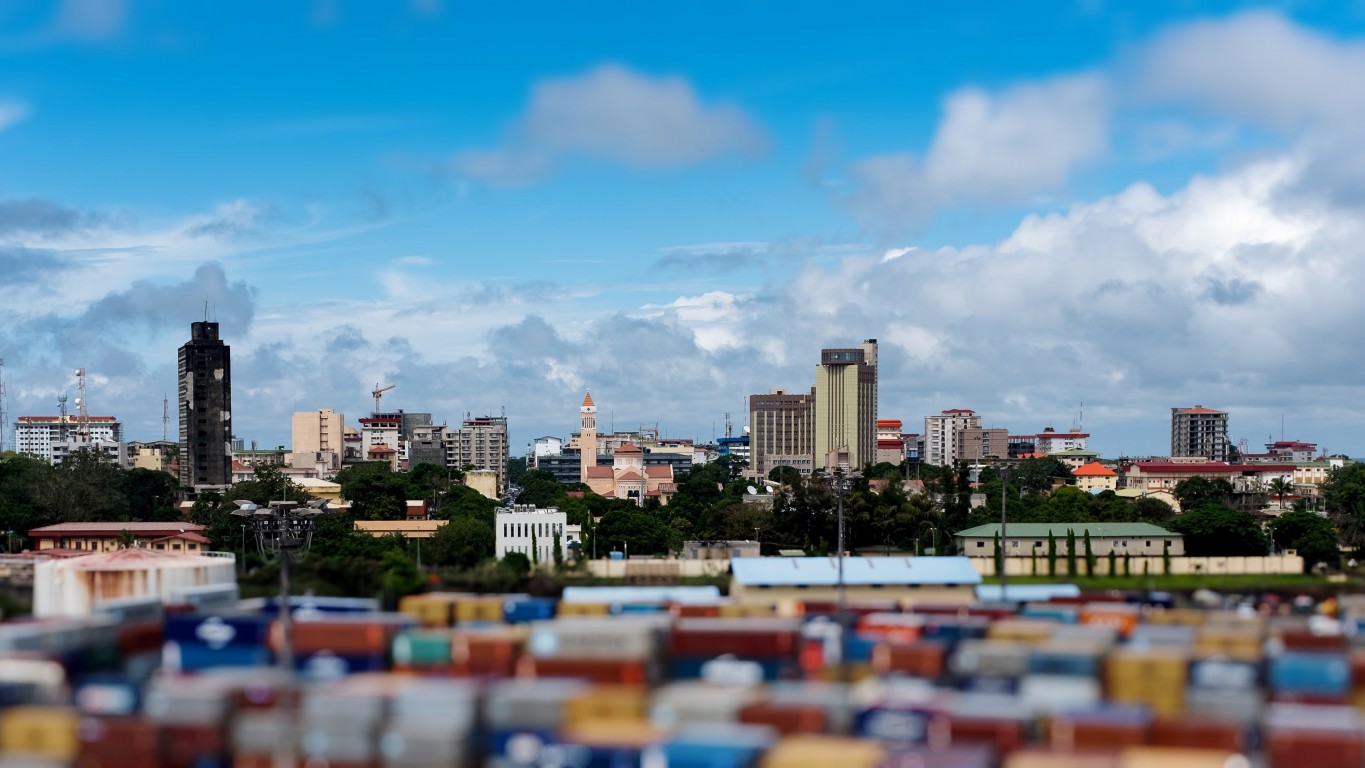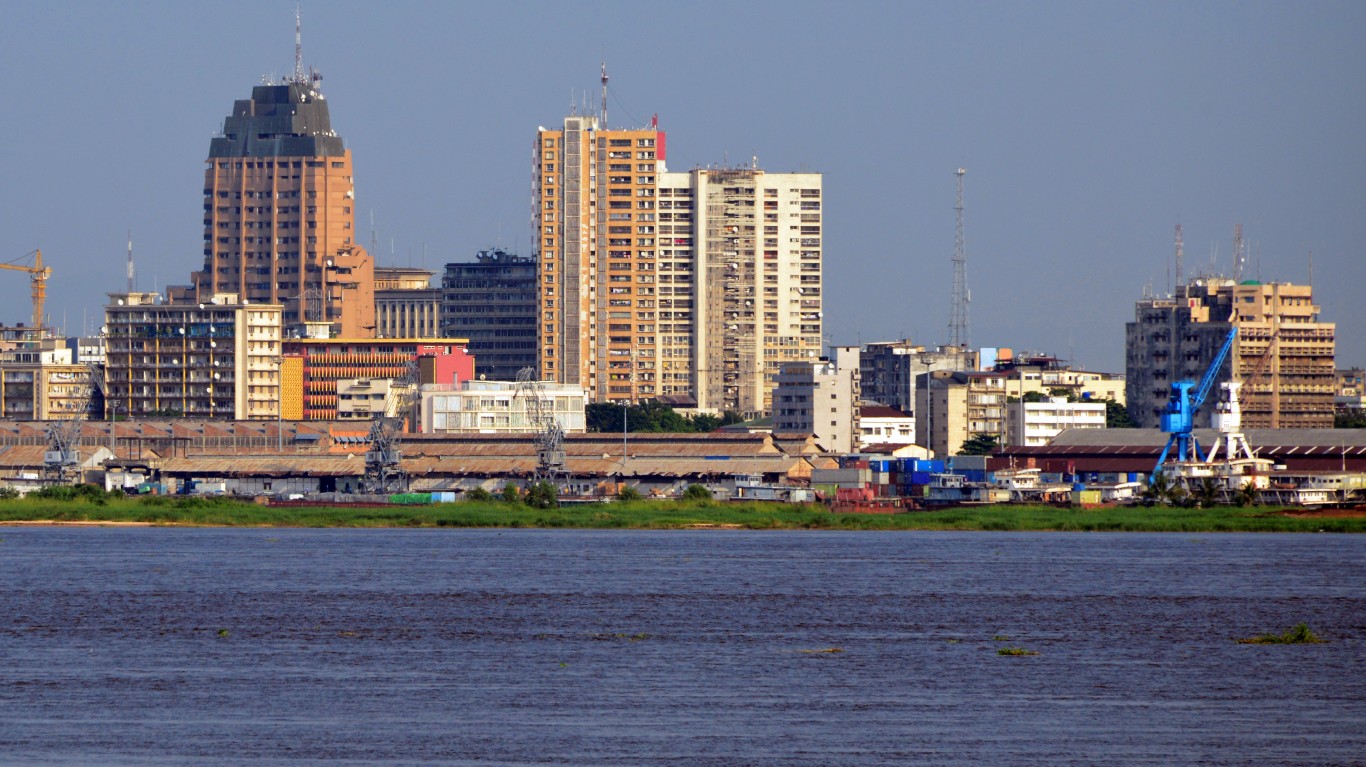
Freedom of movement means a person has the right to travel from place to place within the territory of a country, as well as to leave a country and/or return to it as desired. Free movement is a core human right guaranteed by various international treaties.
But having the right to leave doesn’t often mean people are going to do it. In fact, in some countries more than half of young residents – those between 15 and 29 years of age – want to leave but, for a variety of reasons, stay home. Why people stay varies. Some remain in their home countries because of involuntary immobility – they simply don’t have the resources to migrate. This often applies to countries going through an economic crisis, like Venezuela. (These are the most corrupt countries in the world.)
Residents of some troubled nations, young and otherwise, often want to relocate to other countries in search of work or better economic opportunities. Others move to escape conflict, persecution, or human rights violations.
Click here to see the countries where the most young people want to leave
To identify the countries where the most young people want to leave, 24/7 Tempo reviewed the Potential Net Migration Index from the analytics and international polling company Gallup. The index measures how much a country’s population would change if everyone who wanted to move to another country actually were able to do so. In addition to the overall percentage, the index breaks out the potential population change for 15-to 29-year-olds. Population statistics for 2011 and 2021 are from the World Bank. (These are the countries on track to shrink the most this century.)

21. Syria
> Potential net population change (15-29 years old): -41.0%
> Population, 2021: 21,324,367 — -6.2% from 2011
> Population, 2011: 22,730,733
[in-text-ad]

20. Togo
> Potential net population change (15-29 years old): -41.0%
> Population, 2021: 8,644,829 — +28.1% from 2011
> Population, 2011: 6,748,672

19. Venezuela
> Potential net population change (15-29 years old): -42.0%
> Population, 2021: 28,199,867 — -3.1% from 2011
> Population, 2011: 29,096,159

18. Ukraine
> Potential net population change (15-29 years old): -42.0%
> Population, 2021: 43,792,855 — -4.2% from 2011
> Population, 2011: 45,706,086
[in-text-ad-2]

17. Algeria
> Potential net population change (15-29 years old): -44.0%
> Population, 2021: 44,177,969 — +20.9% from 2011
> Population, 2011: 36,543,541

16. Tunisia
> Potential net population change (15-29 years old): -44.0%
> Population, 2021: 12,262,946 — +11.2% from 2011
> Population, 2011: 11,032,528
[in-text-ad]

15. Peru
> Potential net population change (15-29 years old): -45.0%
> Population, 2021: 33,715,471 — +14.4% from 2011
> Population, 2011: 29,477,721

14. Serbia
> Potential net population change (15-29 years old): -46.0%
> Population, 2021: 6,834,326 — -5.5% from 2011
> Population, 2011: 7,234,099

13. Senegal
> Potential net population change (15-29 years old): -48.0%
> Population, 2021: 16,876,720 — +31.1% from 2011
> Population, 2011: 12,875,880
[in-text-ad-2]

12. Guinea
> Potential net population change (15-29 years old): -48.0%
> Population, 2021: 13,531,906 — +28.5% from 2011
> Population, 2011: 10,527,712

11. Kosovo
> Potential net population change (15-29 years old): -48.0%
> Population, 2021: 1,786,038 — -0.3% from 2011
> Population, 2011: 1,791,000
[in-text-ad]

10. Moldova
> Potential net population change (15-29 years old): -49.0%
> Population, 2021: 2,615,199 — -8.6% from 2011
> Population, 2011: 2,860,699

9. North Macedonia
> Potential net population change (15-29 years old): -52.0%
> Population, 2021: 2,065,092 — +0.3% from 2011
> Population, 2011: 2,058,539

8. Honduras
> Potential net population change (15-29 years old): -53.0%
> Population, 2021: 10,278,345 — +19.2% from 2011
> Population, 2011: 8,622,504
[in-text-ad-2]

7. Congo
> Net pop. change (15 to 29 years old): if young people moved to another country (Kinshasa only): -56.0%
> Population, 2021: 95,894,118 — +39.7% from 2011
> Population, 2011: 68,654,269

6. Nigeria
> Potential net population change (15-29 years old): -57.0%
> Population, 2021: 213,401,323 — +29.0% from 2011
> Population, 2011: 165,463,745
[in-text-ad]
5. Bosnia and Herzegovina
> Potential net population change (15-29 years old): -57.0%
> Population, 2021: 3,270,943 — -12.6% from 2011
> Population, 2011: 3,743,142

4. El Salvador
> Potential net population change (15-29 years old): -61.0%
> Population, 2021: 6,314,167 — +2.9% from 2011
> Population, 2011: 6,137,349

3. Haiti
> Potential net population change (15-29 years old): -68.0%
> Population, 2021: 11,447,569 — +15.0% from 2011
> Population, 2011: 9,954,312
[in-text-ad-2]

2. Liberia
> Potential net population change (15-29 years old): -70.0%
> Population, 2021: 5,193,416 — +24.2% from 2011
> Population, 2011: 4,181,150

1. Sierra Leone
> Potential net population change (15-29 years old): -78.0%
> Population, 2021: 8,420,641 — +27.3% from 2011
> Population, 2011: 6,612,385
The #1 Thing to Do Before You Claim Social Security (Sponsor)
Choosing the right (or wrong) time to claim Social Security can dramatically change your retirement. So, before making one of the biggest decisions of your financial life, it’s a smart idea to get an extra set of eyes on your complete financial situation.
A financial advisor can help you decide the right Social Security option for you and your family. Finding a qualified financial advisor doesn’t have to be hard. SmartAsset’s free tool matches you with up to three financial advisors who serve your area, and you can interview your advisor matches at no cost to decide which one is right for you.
Click here to match with up to 3 financial pros who would be excited to help you optimize your Social Security outcomes.
Have questions about retirement or personal finance? Email us at [email protected]!
By emailing your questions to 24/7 Wall St., you agree to have them published anonymously on a673b.bigscoots-temp.com.
By submitting your story, you understand and agree that we may use your story, or versions of it, in all media and platforms, including via third parties.
Thank you for reading! Have some feedback for us?
Contact the 24/7 Wall St. editorial team.
 24/7 Wall St.
24/7 Wall St. 24/7 Wall St.
24/7 Wall St.
